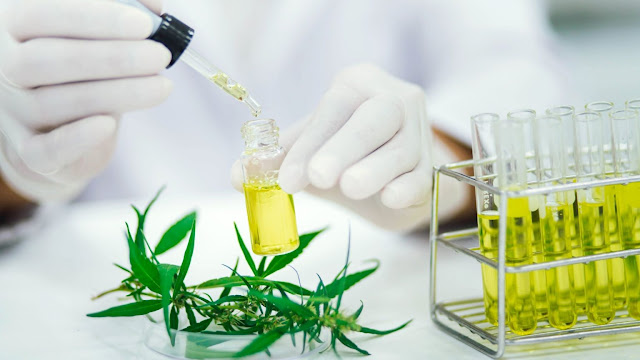US Cannabis Testing Services is Poised for Continued Growth

U.S. Cannabis Testing Services
Cannabis Testing Regulations Drive Industry Demand
As more states legalize cannabis for medical and recreational use, stringent product testing requirements are being enacted to ensure consumer safety and product quality. All states with legal cannabis markets now mandate independent third-party testing of cannabis and cannabis-derived products for purity, potency, contaminants and compliance with regulations. This has created a growing need for licensed cannabis testing facilities and services across the U.S. In this article, we will explore the various types of testing done by these labs, regulations around testing, and the US Cannabis Testing Services market outlook for this growing sector.
U.S.
Cannabis Testing Services checks for microbial impurities including
yeast and mold, residual solvents from extraction processes, pesticides and
other chemicals not intended for human consumption. Tests also verify the THC
and CBD potency of products as labeled. State cannabis agencies oversee testing
programs and may levy fines or revoke business licenses for testing failures
and regulation violations. Independent testing protects consumers and builds
confidence in the regulated industry.
Cannabis Analytics Expand to Meet
Regulation Needs
Testing protocols and required analyses continue to expand as more is learned
about cannabis compositions and best practices. Beyond mandatory testing, many
producers choose additional analyses for product development and market
differentiation. Microbiological testing ensures safety, while heavy metal,
mycotoxin and terpene profile analysis offer quality insights.
Cannabis and hemp industries also increasingly demand potency profiling of
minor cannabinoids like CBG, CBN and terpenes that impact user experiences.
Genetic fingerprinting through DNA testing tracks supply chains and
authenticates strains. Testing of consumable infused products measures
homogenous cannabinoid distributions.
As the industries mature, testing adds other applications like evaluating
shelf-life stability, validating new extraction and cultivation methods, and
supporting clinical research. The scope and sensitivity of analytical
techniques advance in tandem with the scientific understanding of cannabis.
This fuels growing testing market opportunities.
Regional Laboratory Infrastructure Build
Out
To establish local cannabis testing capabilities, several states award new
testing licenses annually to expand laboratory access for producers statewide.
Many early industry entrants are building regional footprints through multiple
licenses across limited-license states.
Larger national players are also entering markets through acquisitions and new
laboratory constructions. In 2021, leading firms launched coastal testing hubs
in Southern California, Massachusetts and Florida with capacities for thousands
of samples monthly. Plans are in development for facilities throughout the
Midwest and Southeast as more states commence adult-use and medical programs.
As more production and retail licenses are issued each application cycle,
cannabis and hemp businesses seek testing partners with experience,
certifications and convenient sample drop-off locations. Proximity to clients
drives further buildout of localized testing networks to accommodate industry
scaling. Participating in state oversight programs also maintains laboratory
approvals as rules evolve.
Demand Drives Innovations in Cannabis
Analytics
Rising volumes incentivize testing laboratories to boost efficiencies and
expand client service models. Automation has been introduced to standardize
sampling handling and accelerate test throughput. Some labs pilot on-site
mobile units and deliver samples directly from cultivators.
New partnerships develop customized analytics packages and reporting dashboards
for batch tracking. Digital results platforms streamline regulatory submissions
and data access. Technology integrations simplify laboratory management systems
and boost data security compliance.
Faster turnaround times are a priority as the speed of commerce increases.
Laboratories explore automated sample prep stations, portable benchtop
analyzers, and compressed testing workflows. Coupled with growing staff
expertise, these trends support consistent high-quality results with reduced
handling times.
Bolstered by Stricter Compliance Metrics
With established state cannabis programs demonstrating regulatory compliance
benefits consumer safety, additional U.S. jurisdictions are approving new
medical and adult-use programs. More legal states mean increased cultivation
and manufacturing activity driving higher demand for analytical testing
services.
Heightened federal and international attention on product safety also motivates
lawmakers to tighten testing requirements. Future policy changes may set
national standards around pesticide residue limits, microbial testing
thresholds and other quality metrics. Licensed testing facilities will play a
pivotal role advising on science-based regulations while verifying ongoing
industry adherence.
As the legal cannabis market matures into a sizable domestic industry,
third-party analytical testing will remain indispensable for responsible
production, distribution and consumption of cannabis and cannabis-derived
products. Cannabis testing plays a pivotal role in quality assurance, product
innovation and consumer safety. The need for sophisticated testing is growing
exponentially alongside the expanding legal U.S. cannabis testing services
market. With double-digit expansion forecasted for coming years, cannabis
testing services are positioned for ongoing growth matching the needs of
regulated programs nationwide.
Get more insights on This Topic- U.S. Cannabis Testing Services



Comments
Post a Comment